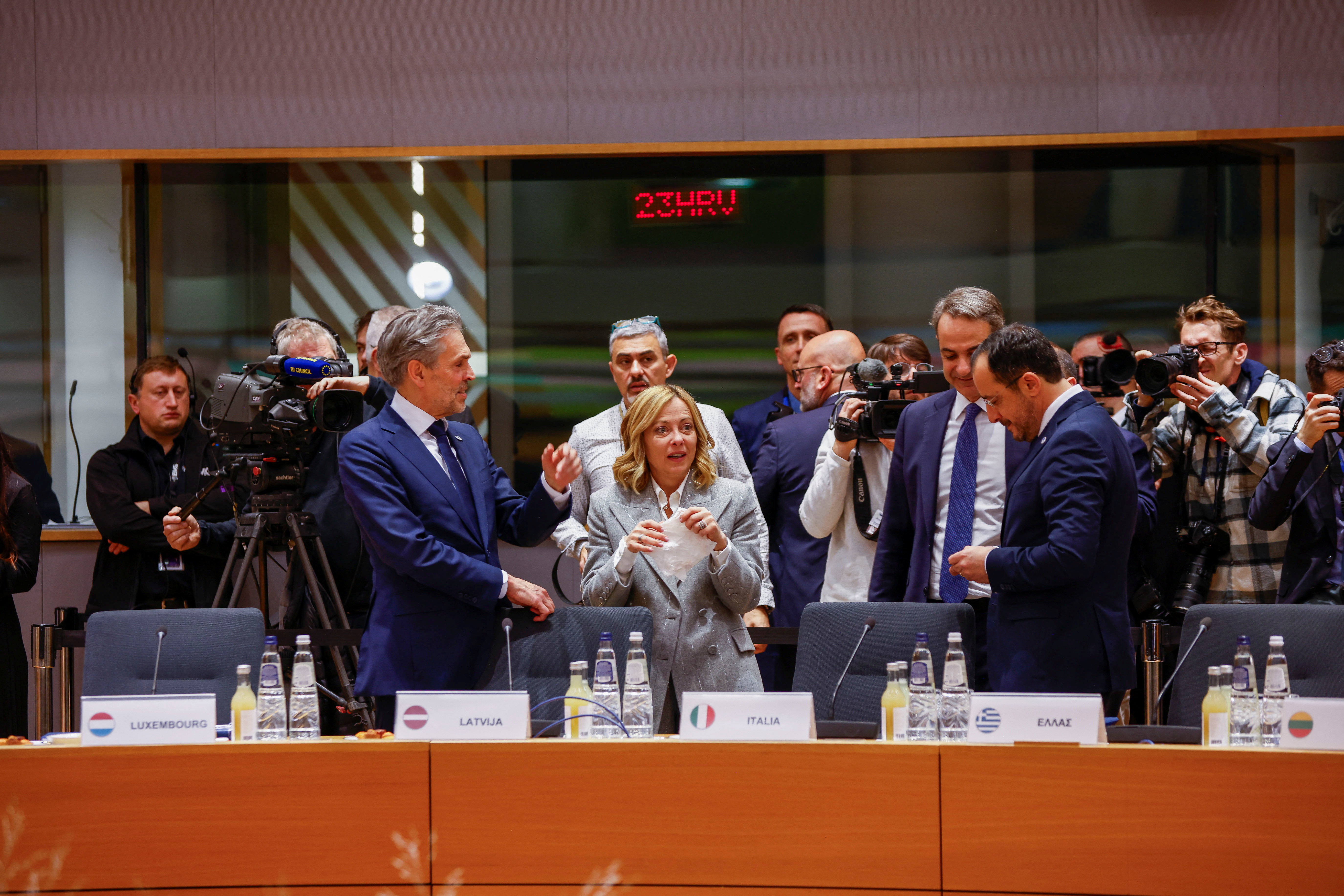President Nikos Christodoulides on Friday called for a roadmap to be created to devise the next steps of Syria’s future after its former leader Bashar al-Assad was overthrown earlier this month.
“Undoubtedly, we all consider that Assad’s removal was positive, but it is more important at this moment to look to the future of Syria and to see what Syria we want to exist,” he began, speaking ahead of the day’s European Council summit.
He added that Cyprus is located less than 80 kilometres from Syria at its closest point and said that it was for this reason that he, alongside the governments of Greece and Austria, had submitted a working document to the European Union at the weekend.
He said he had presented Cyprus’ position at a meeting of European leaders who belong to the European People’s Party earlier in the day, and that he believes there is “a need for there to be a common approach of all 27 member states, alongside the neighbouring counties”.
He also said there will be “no particular American interest in the developments in Syria, but, as the European Union, together with our neighbouring states, we must have a common policy”.
“That is what I will present today, a roadmap of developments that we want to see in Syria. If there is a response based on this from the Syrian government, there should also be a response from our side,” he said.
He then added that the removal of Assad was “welcomed because it also removed some third countries from their leading role in the region”.
“We should not now see this role being filled by Turkey, which claims to play this role”, he added, stressing the “importance of sovereignty, territorial integrity, the protection of minorities in the country, and the need for an inclusive government”.
“All of this, I repeat, we must put on a roadmap. Depending on positive developments, we will also react positively, as the European Union. This is the message I bring from the states of the region, and in particular from the Egyptian president, the King of Jordan and the United Arab Emirates’ president,” he said.
He had held telephone conversations with all three countries’ leaderships in advance of Thursday’s summit, with his conversation with Jordan’s King Abdullah II also coming off the back of a meeting of the Arab ministerial contact group in the Jordanian Red Sea city of Aqaba earlier in the week.
Asked on Thursday what the EU expects from the situation in Syria, Christodoulides said the bloc will expect “the protection of the entire population, an inclusive government without exclusions, and for respect for human rights and religious freedoms to be guaranteed”.
These, he said, are “developments on which the future of the country must depend, and on which the assistance the EU will provide will also depend”.
Additionally, he stressed that from Cyprus’ point of view, it is necessary that the EU “moves together with the states of the region”.
He then reiterated that the overthrow of Assad was a “positive development”, but that “the important thing is to ensure what I have mentioned before, to talk about an independent country, one that is not dependent on Russia, nor on Iran, and of course not on Turkey”.
With this in mind, he said he would ask that the EU appoint a special representative for Syria.
“We cannot claim a role without having a representative on the issue of Syria. Developments are happening. We must be ahead, we must be protagonists,” he said.
He added that the situation in Syria is “also linked to the issue of the discussion on Europe’s role in the world”, saying, “if we do not have a role in our neighbourhood, we cannot claim to have a role in any other region”.
On this matter, he referred to the Arab spring, saying it was “welcomed by the entire international community, but in the end, in many cases we ended up having an Arab winter”.
“We do not want phenomena worse than those we saw before to be repeated,” he added.
He was referring to the overthrow of some Arab regimes which left some states less stable than they had been under their dictators.
On the matter of the new Syrian government, he said the EU had “had contacts at a lower level”, but that the Cypriot government was yet to engage directly.
He then briefly turned his attention to the matter of refugees arriving in the EU from Syria, saying that the bloc expects by the next European Council summit in March to be able to “take specific decisions” and find “innovative ideas”.
He pointed out that a total of 16 EU member states have already frozen asylum requests from Syria, but that this is something Cyprus “successfully did six months ago”.
Christodoulides had announced in a social media post on April 13 that the government had suspended its processing of asylum claims for applicants of Syrian origin.
However this announcement was rationalised two days later to mean that the government would act in this regard to the extent that European Union law will allow, and wait the maximum allowed period of time – 21 months – between the submission of an asylum application and it being examined.
Additionally, the situation in Syria has considerably changed since April 13.






Click here to change your cookie preferences